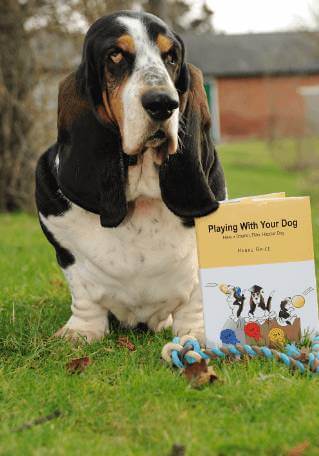When your dog twitches, paddles their paws, or gives a soft bark in their sleep, it’s natural to wonder what’s happening. Do dogs dream? And if they do, what are they dreaming about?
Sleep is vital for dogs’ health and behaviour. In the video below, I explain what research tells us about canine dreaming and what those movements mean.
Watch the Video
The Science of Dog Dreams
Like us, dogs experience rapid eye movement (REM) sleep, the stage linked with dreaming. Brain scans show similar activity patterns to humans during this phase, and this is when the twitching and muffled barks appear.
Studies using EEGs found dogs enter REM about 20 minutes after falling asleep. Small dogs tend to have shorter, more frequent dream cycles, while large dogs have longer ones. The brain’s pons, which normally prevents muscle movement during sleep, relaxes slightly, allowing tiny motions as the dream plays out.
What Dogs Might Dream About
Research from MIT suggests animals replay experiences during sleep. Rats, for instance, showed the same brain activity when dreaming as when running a maze. For dogs, that may mean replaying walks, play, or interactions with you, in other words, moments that hold emotional value!
Why It Matters
REM sleep helps with memory, learning, and emotional balance. Puppies spend much of their sleep in this stage as their brains develop. Poor or interrupted sleep can affect focus, mood, and behaviour, just as it does in people.
Helping Dogs Sleep Well
- Create a quiet, consistent sleeping area.
- Keep bedtime calm; whether that’s a quick potter around the block, let outs in the garden for a final wee break and bedtime biscuit, having a predictable routine helps dogs to settle.
- Use comfortable, supportive bedding – consider your dog’s age, health status, and location of the bed.
- Maintain a steady temperature and dim lighting. Ensure no external security lights will disturb your dog, should this suddenly turn on, overnight.
- Allow undisturbed naps during the day – as the saying goes, “let sleeping dogs lay”.
If your dog is restless or distressed during sleep, speak with your vet to rule out any potential health issues causing their restlessness, and seek the support of a clinical animal behaviourist if it’s suspected that anxiety may be playing a role. Check out the Animal Behaviour & Training Council’s website for practitioners near you, or get in touch with me at [email protected].
Learn more about our classes

Get Hanne's book, clothing and more
Hanne has a number of publications including her book Playing With Your Dog to help owners work out the games that are best suited for their pet to play throughout his life, from puppyhood to old age, available from Amazon. Check out Hanne's range of contemporary casuals The Collection – for pet lovers made from recyclable, organic materials that are sustainably sourced.

